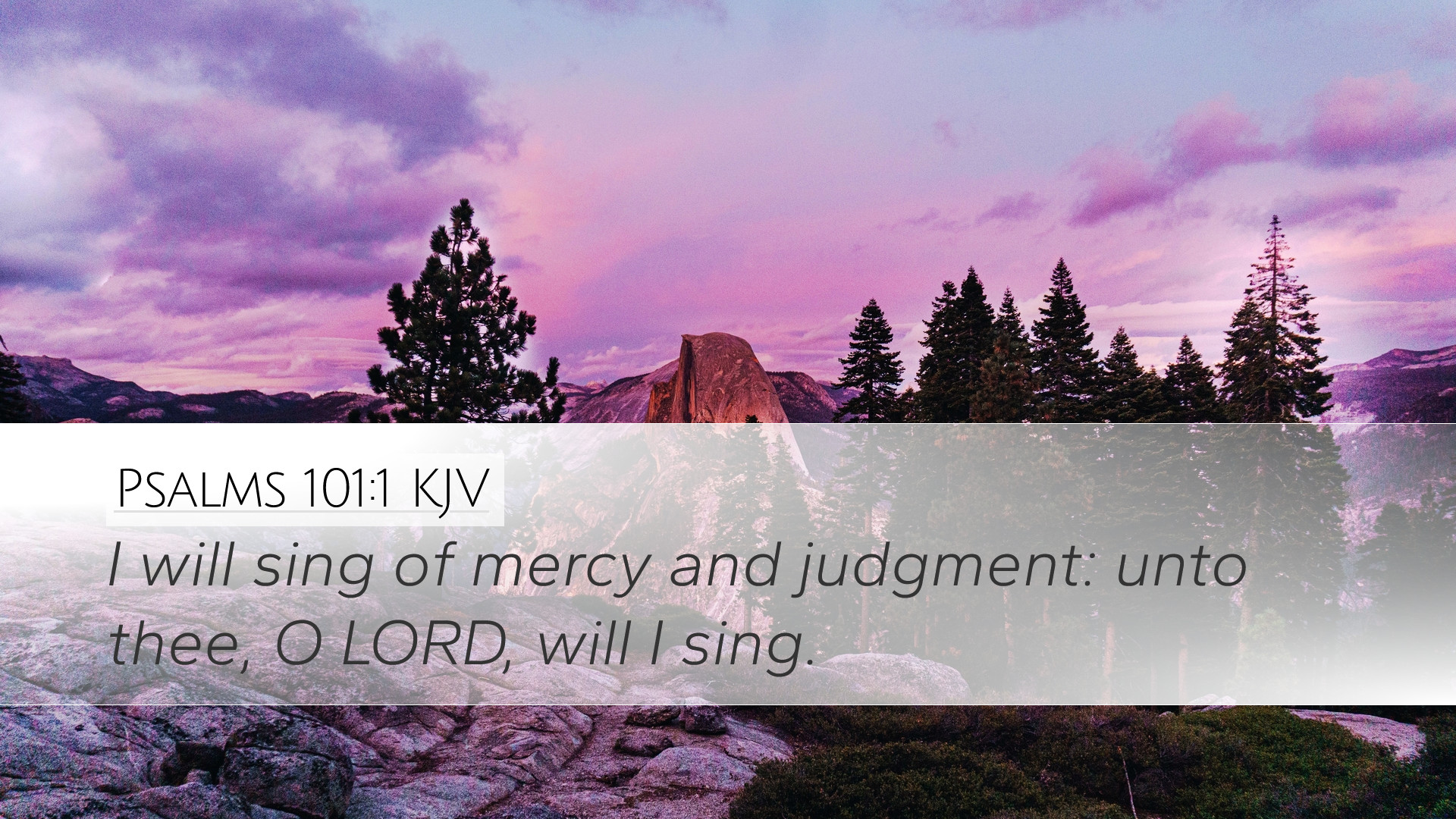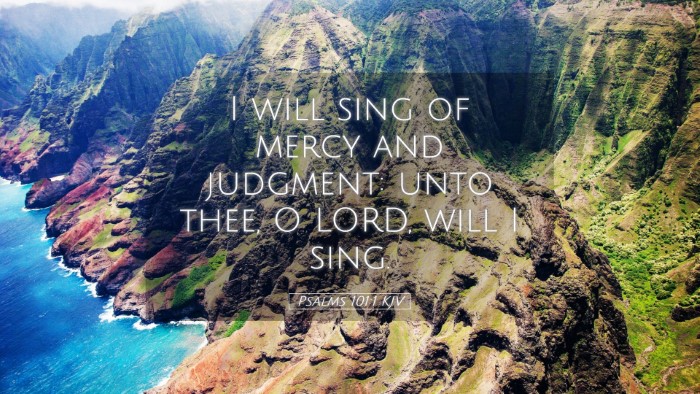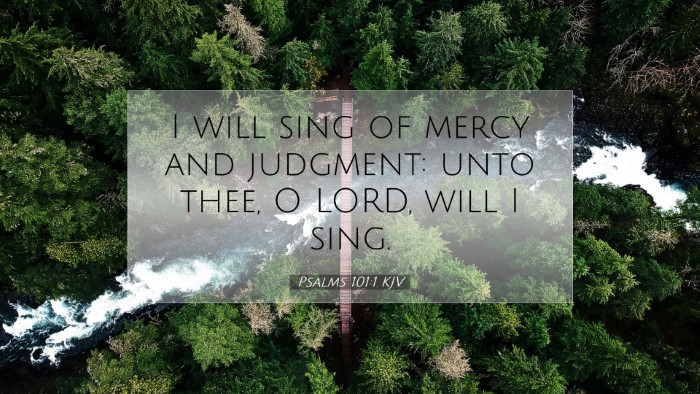Commentary on Psalms 101:1
Psalms 101:1 (KJV): "I will sing of mercy and judgment: unto thee, O Lord, will I sing."
This verse forms the introductory statement to a psalm that outlines the king's commitment to righteous leadership. It combines themes of mercy and judgment, elements essential to God’s character, and serves as a prelude to the essential duties a leader should embody.
Overview of Key Themes
- Mercy and Judgment: The dual emphasis on mercy and judgment is crucial amid a world often marked by injustice. This psalm encourages leaders to reflect these attributes of God.
- Worship as a Response: The personal commitment expressed by the psalmist to sing unto the Lord highlights the importance of worship as a response to God's character.
- Public Commitment: As a king, the declaration emphasizes accountability. True worship must translate into action, especially for those in leadership.
Insights from Matthew Henry
Matthew Henry emphasizes the significance of the psalmist's intention to sing "of mercy and judgment." He notes that mercy is an integral aspect of God's dealings with sinners; it invites reflection on God's patience and grace. On the other hand, judgment signifies God's righteousness and serves as a reminder for leaders to uphold justice and integrity.
Henry suggests that the order of these two attributes reflects the essence of God’s nature: "He is the God of mercy," yet "He must be feared for his judgments." Thus, the psalmist's song is both an acknowledgment of God’s gracious acts and a solemn reminder of the accountability that accompanies divine favor.
Insights from Albert Barnes
Albert Barnes provides a detailed examination of the two concepts the psalmist presents. He argues that singing of mercy links to God’s promises, affirming the trust in divine grace. Barnes articulates a call to worship that links with the understanding of God’s protective nature amid trials and tribulations.
On the aspect of judgment, Barnes highlights that the acknowledgment of God's judgment leads to a life that seeks holiness. The act of singing "unto thee, O Lord" symbolizes a deep relational aspect of worship, where the leader places trust in God and seeks His guidance in governance. For Barnes, such a declaration sets a moral compass for both personal and public life.
Insights from Adam Clarke
Adam Clarke highlights the personal resolve inherent in the verse. He interprets the phrase "I will sing" as a determined choice, reflecting the psalmist’s commitment to establish an atmosphere of praise and worship. Clarke points out that setting this intention is fundamental for both individual spiritual accountancy and communal worship practices.
Furthermore, Clarke considers the words "of mercy and judgment" in light of the psalmist’s role as a leader. He indicates that the combination of these two aspects forms the foundation for righteous governance. There is an implicit invitation for the rulers to emulate God’s mercy in their dealings, as well as to be vigilant about justice. This ensures that leadership is not driven solely by personal ambition but rather steered by divine principles.
Application for Pastors and Leaders
For pastors, the insights drawn from this psalm present an opportunity to reflect on the characteristics of God that should shape their ministries. Engaging in the dual themes of mercy and judgment can facilitate a balance between grace and accountability in preaching and teaching.
Leadership in any ministry context requires a commitment to embodying both mercy and justice. It isn’t enough to preach about these virtues; they must also be lived out in practical ways. This involves fostering communities that extend grace while upholding biblical standards of righteousness.
Conclusion
Psalms 101:1 encapsulates a profound statement of a leader's posture before God, committing to a life of worship characterized by the attributes of mercy and judgment. Each commentator adds layers of meaning that enrich our understanding of the implications of this verse for leaders in both spiritual and secular realms.
The call to worship is not merely personal but resonates deeply in the collective life of the faith community. As we ponder this verse, may we be inspired to lead with humility, reflecting God's nature as we serve, guide, and commit ourselves to His ways.


